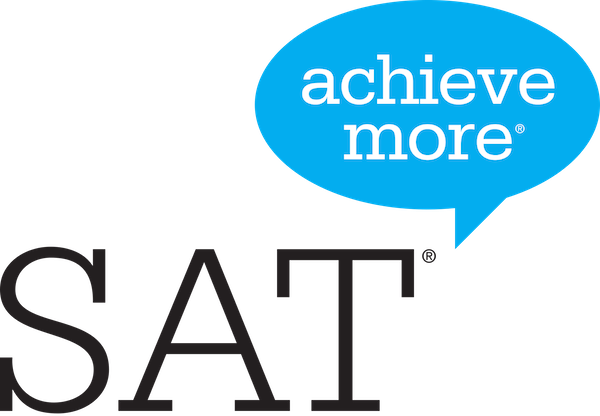
If you've already taken the SAT, you know it will likely be an important component of your college applications. Maybe you've set a goal score for yourself based on the types of colleges you're interested in. Even if you haven't taken the SAT yet or are still considering whether to take it, you probably want to know more about what the most competitive colleges and universities expect when it comes to applicants' standardized test scores.
I've compiled a list of colleges with the highest average SAT scores for admitted students. You'll be able to compare your own SAT scores (or goal scores) with those of top colleges and universities. I'll also talk about what these rankings actually mean so that you can interpret this information effectively. For example, are these schools the best schools you can attend? Are they the most competitive? What do you do if your SAT scores are below the listed averages?
Read on for a list of the top schools ranked by SAT score, and answers to the above questions!
A Note About Scores and the Digital SAT
In 2024, the SAT transitioned to a digital format and eliminated paper-based testing (except for students testing with accommodations). While the digital SAT tests you on the same skills as the old paper exam, the digital SAT is shorter, with fewer sections, questions, and more concise reading passages.
We can’t say for sure yet since the digital SAT is still brand new, but these changes to the exam could affect student test scores. Right now, the most recent SAT score data available comes from test takers who took the old, paper SAT. We’ll update the average SAT scores in this article when more information about digital SAT scores is available!
Colleges With the Highest SAT Scores: Rankings
Let's get right to the good stuff: the list! The colleges below are ranked by mean (average) composite SAT score for admitted students. We've also included the mean scores for each SAT section: Evidence-Based Reading and Writing (EBRW) and Math.
|
Rank
|
School
|
EBRW
|
Math
|
Composite
|
|
1
|
770
|
775
|
1545
|
|
|
2
|
771
|
772
|
1543
|
|
|
3
|
762
|
766
|
1528
|
|
|
4
|
762
|
765
|
1527
|
|
|
4
|
763
|
764
|
1527
|
|
|
4
|
763
|
764
|
1527
|
|
|
7
|
762
|
764
|
1526
|
|
|
8
|
761
|
763
|
1524
|
|
|
9
|
759
|
762
|
1521
|
|
|
10
|
759
|
761
|
1520
|
|
|
11
|
758
|
759
|
1517
|
|
|
12
|
757
|
758
|
1515
|
|
|
13
|
756
|
758
|
1514
|
|
|
14
|
756
|
757
|
1513
|
|
|
15
|
754
|
756
|
1510
|
|
|
16
|
750
|
754
|
1506
|
|
|
17
|
752
|
753
|
1505
|
|
|
17
|
753
|
752
|
1505
|
|
|
19
|
752
|
752
|
1504
|
|
|
20
|
751
|
752
|
1503
|
|
|
21
|
749
|
751
|
1500
|
|
|
22
|
747
|
748
|
1495
|
|
|
23
|
746
|
748
|
1494
|
|
|
24
|
744
|
746
|
1490
|
|
|
24
|
745
|
745
|
1490
|
|
|
25
|
743
|
744
|
1487
|
Source: US News & World Report
If you want more detailed information about admissions statistics (and where you happen to fit) for any of the above schools, click the link to take you to that specific school's admissions page. On this page, you can look at average SAT scores as well as estimate your chances of getting in by entering your test scores and GPA.
If you want SAT score information for other schools not listed above, simply search for "[School Name] PrepScholar admissions" on Google.

The list above won't mean much without a Rosetta Stone of SAT scores.
How Do You Interpret These SAT Rankings?
Hopefully, you now have an idea of the highest expectations schools can have for students' SAT scores. This information isn't that helpful, though, if you don't know how students tend to perform on the exam.
The SAT is currently scored out of 1600 points: 800 points possible for the Math section, and 800 points possible for the EBRW section. Currently, the average composite SAT score is 1028.
In general, a student is considered to have an excellent SAT score if she is in the top 25% of test takers. To fall within this category, you'd need a composite score of around 1200 or higher. On the other hand, a student is considered to have a low SAT score if he is in the bottom 25% of test takers, with a composite score around 870 or lower. Read our guide to learn more about how to think about "good" or "bad" SAT scores.
Are These Really the Top Schools?
The average SAT scores listed for the schools above are much higher than the overall average—in fact, some of them are pretty close to perfect. But if a school has dizzyingly high average SAT scores, does this mean it's necessarily a top school?
In a sense, yes. Schools that attract the strongest applicants tend to do so because they have excellent reputations and offer strong undergraduate programs. When schools have a stronger student body—undergraduates with very high SAT scores, for example—they tend to build up a positive reputation and get more competitive as a result. It's a positive feedback loop: strong students with strong SAT scores continue to attract strong students with strong SAT scores.
Many of the schools on the list above are ranked on well-known "best colleges and universities" lists, like the one that US News & World Report publishes each year. These ranking systems aren't perfect, but they do take many quantifiable factors into account (besides just standardized test scores) when evaluating US schools.
You'll notice, for example, that all of the Ivy League schools are on this list. These schools have such high average SAT scores because they are well-reputed enough to attract students with exceptional scores.
A small side note: you might have noticed a trend in the scores that made you pause. Several of the schools listed tend to have higher Math averages than EBRW averages. Quite a few of these schools are heavy in STEM fields (science, technology, engineering, math); these sorts of schools may weight test scores more heavily in the application process than your average liberal arts institution, which could account in part for their high test averages.
With that said, it's important to note that the best school you can attend is the school that's the best fit for you. Perhaps you're interested in schools with strong Romance-language departments, flexible core curricula, or generous financial aid programs. The reality is, not all of the schools listed above will meet every student's criteria.
What's most important to your success in college and beyond is that you find an institution that is able to support and foster your interests, passions, and future career path. You wouldn't list a school renowned for its engineering program as your top choice, for instance, if you wanted to major in comparative literature!
Are These Schools Really the Most Competitive?
The way you gauge a school's competitiveness is by looking at its acceptance rate. The greater the ratio of student applicants to spots in a new freshman class, the lower a school's acceptance rate will be. Schools are defined as competitive if many students are vying for a limited number of spots.
In terms of acceptance rates, many of the schools above are some of the most competitive in the country. More than half of them have acceptance rates of less than 10%. There are some equally competitive niche institutions not included on the list, such as Cooper Union, the US Naval Academy, the West Point, and Juilliard—all of which have extremely low acceptance rates.
In sum, the top schools ranked by SAT scores do tend to be competitive, but they're not the only institutions with very low acceptance rates.

Just because you're lagging behind the group doesn't mean you won't have an opportunity to catch up.
What If Your SAT Scores Fall Below the Listed Averages? Do You Still Have a Chance of Getting In?
So what do you do if you're trying to get into a very competitive school, but your scores don't measure up?
In order to be a competitive applicant, you'll have to make up for that perceived weakness elsewhere in your application. You can do this, for example, by earning an exceptionally high GPA or making an impressive commitment to community service. Admissions officers consider students' applications holistically—meaning that they don't just focus on standardized test scores.
The extent to which you have to "make up" for a low test score with other parts of your application depends on how far you fall below the school's average. At an elite school, it's unlikely you'll get in with very low SAT scores, even if the rest of your application is strong.
So how do you know whether your scores fall below a dangerous threshold? Because the scores above are averages, you know that about half of all accepted students will have SAT scores lower than the ones listed.
You can also access information on the "middle 50" for each school—i.e., the scores at the 25th and 75th percentiles for admitted students. This will tell you the range of scores that the middle 50% of accepted students have. You're generally a safer applicant if you fall in this middle 50% than if you're in the bottom 25% of students.
Another factor to consider is that each school will weigh applicants' SAT scores a bit differently in the application process. Schools like Washington University in St. Louis, for example, are well known for heavily favoring students with excellent scores. Some other schools may forgive below-average test scores if another part of your application impresses the admissions committee (refer to my examples above). There are even schools that don't require test scores at all!
If you want to calculate your chances of getting into a particular school, use our admissions pages. You can find these by Googling "[School Name] PrepScholar admissions." These pages will give you more information about the school you're interested in.
Finally, if it turns out that your SAT scores just aren't up to par, consider taking the ACT. All four-year US colleges and universities accept ACT scores, and some students strongly feel that they perform better on the ACT than on the SAT.
What's Next?
Get a head start on your SAT studying by checking out our complete Digital SAT guide.
If you're considering adding some of these schools to your college application list, you'll want your SAT scores to be the best they can be. Check out our famous guide to getting a perfect 1600 on the SAT, written by an expert perfect scorer.
Don't have a ton of time to prep for your SAT but still want to improve your score? Then read our top SAT tips and strategies to help you improve your exam performance.












